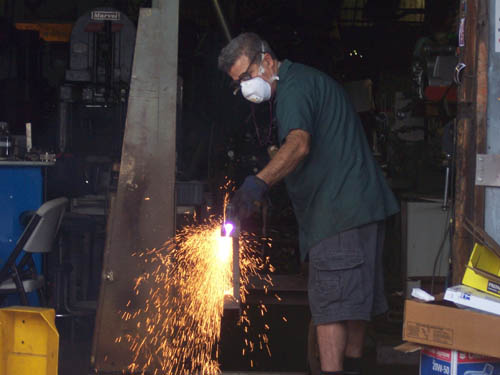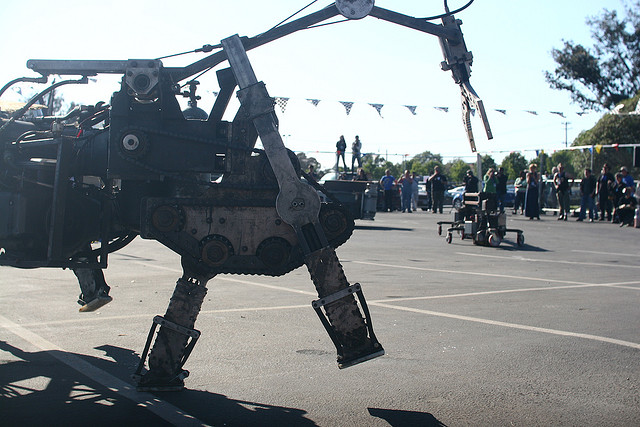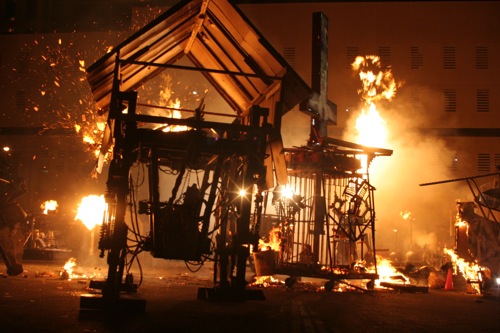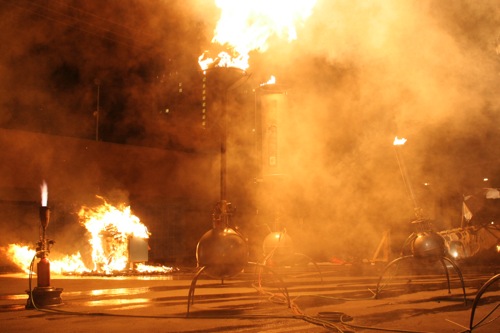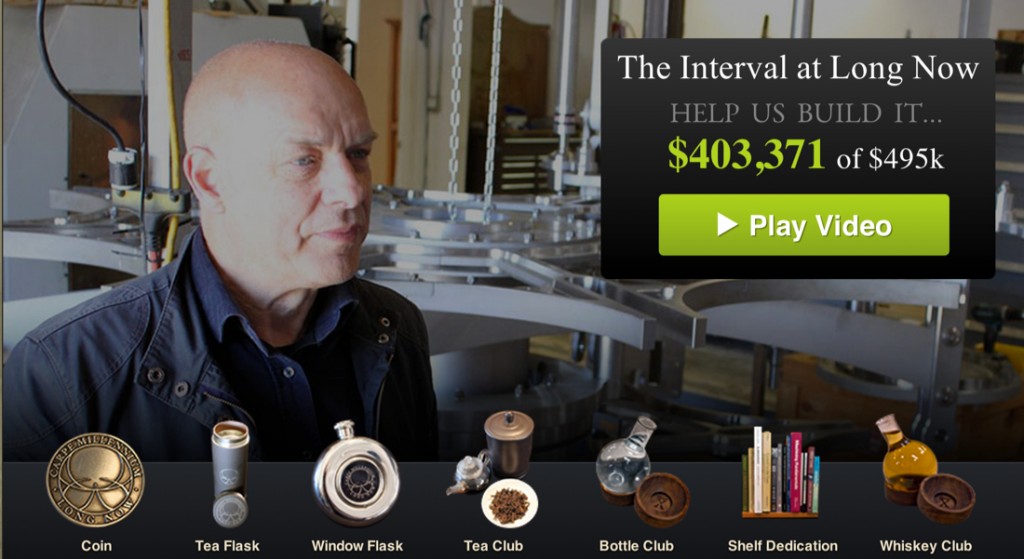What information is essential to sustaining civilization? What books would you want to have if we had to start from scratch? What references would we need available to rebuild what we have today? Long Now is collecting 3,500 books based on those questions to form a Manual for Civilization. We’ve asked for suggestions from Long Now members, donors to The Interval at Long Now (where this library will be housed), and a diverse, distinguished group of experts who we’ve invited to help.
Today’s list of additions to the Manual for Civilization comes from a groundbreaking artist whose work suggests a post-apocalyptic future full of fiery marauding mechanical creatures. For 35+ years Mark Pauline has been building and destroying machines as founder and leader of Survival Research Laboratories (SRL).
Two decades before Robot Wars and BattleBots made DIY-built robo-gladiators a television spectacle, Mark Pauline and SRL were creating their own machines out of industrial detritus and staging underground events in San Francisco that were full of flying metal, shooting fire and lots and lots of noise.
Since 01978, SRL has produced more than 50 events around the world with a mission to “[re-direct] the techniques, tools, and tenets of industry, science, and the military away from their typical manifestations in practicality, product or warfare.” Here’s what that looks like:
Mark’s book list includes the nearly 3,000-page Machinery’s Handbook plus fiction by Ballard, Burroughs and Pynchon amongst others. His one historical entry, unsurprisingly, is a social history of technology and warfare: War in the Age of Intelligent Machines.
Here are Mark Pauline’s complete selections for the Manual for Civilization:
- A Confederacy of Dunces by John Kennedy Toole
- The Third Policeman by Flann O’Brien
- The Uses of Disorder: Personal Identity & City Life by Richard Sennett
- Extraordinary Popular Delusions and The Madness of Crowds by Charles MacKay
- Crash by JG Ballard
- Concrete Island by JG Ballard
- The Wild Boys by William Burroughs
- The Ticket that Exploded by William Burroughs
- Erik Dorn by Ben Hecht
- The Kingdom of Evil: A Continuation of the Journal of Fantazius Mallare by Ben Hecht
- Ice by Anna Kavan
- Maldoror (Les Chants de Maldoror) by Comte de Lautreamont
- The Crying of Lot 49 by Thomas Pynchon
- Against Nature by Joris-Karl Huysmans
- The Damned (La-Bas) by Joris-Karl Huysmans
- Impressions of Africa by Raymond Roussel
- Locus Solus by Raymond Roussel
- Hyperion by Dan Simmons
- Neuromancer by William Gibson
- Venus in Furs by Leopold von Sacher- Masoch
- Machinery’s Handbook by Erik Oberg and Franklin D. Jones
- War in the Age of Intelligent Machines by Manuel De Landa
Thanks so much to Mark for taking the time to give us this great list. If the robo-uprising happens, now we’ll be ready.
Previously we’ve shared book lists from Neal Stephenson, Kevin Kelly, Maria Popova, and Brian Eno amongst others, and more suggestions are coming in from Long Now members and Interval donors. We are starting to acquire physical books for the shelves and are working with the Internet Archive to make digital versions of all these books available online. So whether you are visiting us at The Interval in San Francisco or on the other side of the world you can access the Manual for Civilization collection.
To add your recommendations for the Manual for Civilization and vote for which suggested titles should find a place on The Interval’s shelves, just make a donation to support the project. All donors, at any level, can suggest and vote on books. And your support will help give long-term thinkers an inspiring place to gather, full of amazing books.
This week The Interval “brickstarter” surpassed $400K in funding. That’s more than 80% of our fundraising goal. This covers the capital improvements and redesign of our space at Fort Mason Center in San Francisco, including the build-out of a beautiful bar/café/event space for the public, offices for Long Now staff, and a world class audio-visual system for showcasing sound and visuals by Brian Eno.
We have a few weeks left to reach our final goal before we open our doors in May. Charter donors will get invites to pre-opening parties and lots of other great benefits. Very soon we’ll share details about our opening dates and the first events we’ll host at The Interval.

